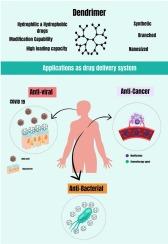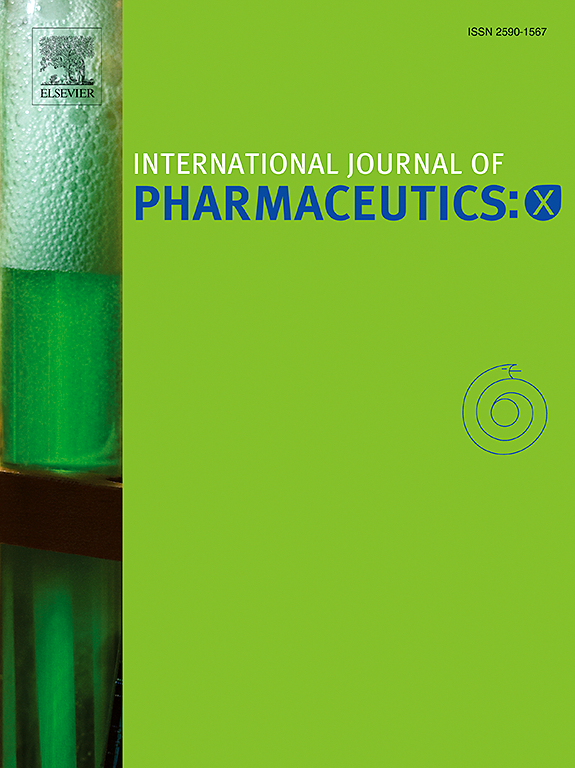Overview of dendrimers as promising drug delivery systems with insight into anticancer and anti-microbial applications
IF 6.4
2区 医学
Q1 PHARMACOLOGY & PHARMACY
引用次数: 0
Abstract
Dendrimers are tree-like polymeric molecules that have three main compartments: the core, branching units, and functional end groups. They are nanosized and monodispersed, with an almost spherical shape. For the past few decades, dendrimers have been evaluated in numerous studies as a promising category of candidates for gene delivery and diagnostic applications. Nowadays, some advanced dendrimers are considered promising anticancer delivery systems due to the vast types and applicable modifications. They also showed their effectiveness as antibacterial and antiviral agents. Smart dendrimers with pH-, redox-, or directly tumor microenvironment-responsive properties are investigated. pH-sensitive dendrimers enhance drug release in the tumor's acidic environment and inhibit release at physiological pH, thereby increasing the hemocompatibility of these chemical agents. Dendrimers have been examined for years to prevent sexually transmitted diseases, such as HIV, HPV, HSV, etc. In this regard, some studies yielded encouraging results and opened new avenues. Following the onset of the COVID-19 pandemic, researchers have shifted their focus toward seeking remedies to prevent and treat this viral disease. Dendrimers have already demonstrated favorable efficacy in protection against COVID-19 and other respiratory viral diseases. Furthermore, they may mitigate the neuroinflammatory manifestations of COVID-19 in individuals experiencing a critical disease state.

概述树状大分子作为有前途的药物传递系统与洞察抗癌和抗微生物的应用
树状大分子是树状的聚合分子,有三个主要的区室:核心、分支单元和功能端基。它们是纳米大小,单分散的,几乎是球形的。在过去的几十年里,树突状分子在许多研究中被评估为基因传递和诊断应用的一个有前途的候选类别。目前,一些先进的树状大分子由于种类繁多和适用的修饰而被认为是有前途的抗癌递送系统。它们还显示出作为抗菌和抗病毒药物的有效性。研究了具有pH-,氧化还原-或直接肿瘤微环境响应特性的智能树状大分子。pH敏感树突状分子增强药物在肿瘤酸性环境中的释放,抑制生理pH下的释放,从而增加这些化学药物的血液相容性。多年来,树突状分子一直被用于预防性传播疾病,如艾滋病毒、HPV、HSV等。在这方面,一些研究取得了令人鼓舞的结果,并开辟了新的途径。在COVID-19大流行爆发后,研究人员将重点转向寻求预防和治疗这种病毒性疾病的补救措施。树状大分子已经在预防COVID-19和其他呼吸道病毒性疾病方面显示出良好的功效。此外,它们可能会减轻COVID-19在处于危急疾病状态的个体中的神经炎症表现。
本文章由计算机程序翻译,如有差异,请以英文原文为准。
求助全文
约1分钟内获得全文
求助全文
来源期刊

International Journal of Pharmaceutics: X
Pharmacology, Toxicology and Pharmaceutics-Pharmaceutical Science
CiteScore
6.60
自引率
0.00%
发文量
32
审稿时长
24 days
期刊介绍:
International Journal of Pharmaceutics: X offers authors with high-quality research who want to publish in a gold open access journal the opportunity to make their work immediately, permanently, and freely accessible.
International Journal of Pharmaceutics: X authors will pay an article publishing charge (APC), have a choice of license options, and retain copyright. Please check the APC here. The journal is indexed in SCOPUS, PUBMED, PMC and DOAJ.
The International Journal of Pharmaceutics is the second most cited journal in the "Pharmacy & Pharmacology" category out of 358 journals, being the true home for pharmaceutical scientists concerned with the physical, chemical and biological properties of devices and delivery systems for drugs, vaccines and biologicals, including their design, manufacture and evaluation. This includes evaluation of the properties of drugs, excipients such as surfactants and polymers and novel materials. The journal has special sections on pharmaceutical nanotechnology and personalized medicines, and publishes research papers, reviews, commentaries and letters to the editor as well as special issues.
 求助内容:
求助内容: 应助结果提醒方式:
应助结果提醒方式:


